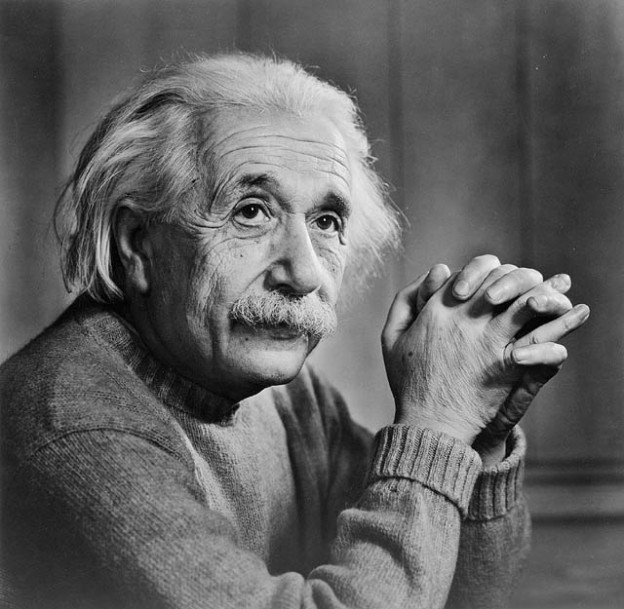
Albert Einstein, the genius behind the theory of relativity, which provided a new framework for all of physics and proposed new concepts of space and time, has recently been making headlines again. However, this time it is not for a new scientific breakthrough, but because of two handwritten notes the scientist gave a bellboy 95 years ago.
The story goes something like this. In October 1922, Einstein was invited to Japan to deliver a series of lectures. As the scientist was making his way from Europe to Tokyo, he received a telegram notifying him that he had been awarded the prestigious Nobel Prize in Physics. Though pleased at the news, the Nobel laureate decided to continue with his Japanese trip instead of heading to Stockholm to accept the honor.

While in Tokyo, he penned two notes in German. The first, dubbed the “theory of happiness,” written on the Imperial Hotel stationary where he was staying, said, “A quiet and humble life will bring more happiness than the pursuit of success and the constant restlessness that comes with it.”
The second note, scribbled on a piece of plain paper, said, “Where there’s a will, there’s a way.”
The narrative on why the scientist wrote the two notes varies. Some believe they were to express Einstein’s delight at the reception he received from the people of Japan who flocked to attend the laureate’s lectures. Others think they were specially written for a bellboy who came to deliver a message, either because the scientist did not have loose change to tip him, or because the messenger refused to accept a monetary compensation. Regardless of the reason, Einstein purportedly told the courier, “Maybe if you are lucky, those notes will become much more valuable than just a regular tip.” He was right!
Earlier this year, the bellboy’s nephew decided to finally part with the letters and handed them to Jerusalem-based Winner’s Auctions and Exhibitions. The “theory of happiness” was put up for auction on October 24, 2017, with a starting bid of $2,000. The auctioneers estimated that it would sell for a maximum of $8,000. Instead, it brought the owner an astounding $1.56 million from a European buyer who wishes to remain anonymous. Auction representative Meni Chadad later said, "It was a record for an auction of a document in Israel, and it was just wow, wow, wow. I think the value can be explained by the fact that the story behind the tip is so uplifting and inspiring, and because Einstein continues to be a global rock star long after his death." The second autographed note, which opened at $1,000, and expected to fetch a maximum of $6,000, auctioned for $240,000!

Though now regarded as one of the most brilliant scientists of our times, Einstein’s early years were not very promising. The young boy, who was unable to speak coherently until the age of nine, was a poor student leading his teachers to believe he had a mental disability. Things did not get better in high school when he was expelled because his teachers thought his uncaring attitude was affecting other students. Upon graduating from the University of Zurich at the age of 21, Einstein was unable to obtain the customary university internship, due to lack of support from his professors, who were upset at his propensity to miss lectures and study on his own.
A clerical job at a patent office in Bern, Switzerland gave the scientist time pursue his passion and curiosity for scientific theories. In 1919, Einstein submitted four papers, the most famous of which outlined the formula for converting matter to energy – E=mc2. This simple calculation, used in everything from nuclear weapons to mobile phone signals, altered the foundation of modern Physics and finally brought the wild-haired scientist the recognition he deserved.
Resources: wikipedia.org, winners-auction.com